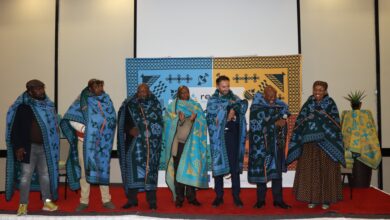Vandalism of Solar Cables Leaves Lits’ilong Communities Thirsting for Water

The communities of Ha-Lapisi and Ha-Ranthiba in Lits’ilong are facing a severe water crisis due to the vandalism of solar cables essential for pumping groundwater. This situation has left residents exposed to acute thirst and highlights the growing challenge of infrastructure theft in rural areas.
During an interview with the Lesotho News Agency (LENA) on Thursday, Lits’ilong Electoral Division Community Councillor Mr. Khotso Masupha confirmed the troubling situation. He explained that these communities rely heavily on groundwater, which is accessed through solar-powered pumps. However, the ongoing theft of solar cables and pumps has severely disrupted water access, exacerbating an already precarious situation for the residents.
“The people of Ha-Lapisi and Ha-Ranthiba have been left in a terrible water scarcity situation due to the continuous stealing of our solar cables and pumps,” Mr. Masupha stated. The theft not only deprives families of essential water resources but also places additional burdens on local governance and community efforts aimed at ensuring water security.
The Impact of Water Scarcity
Water is vital for daily living, impacting health, sanitation, and overall quality of life. The current crisis in Ha-Lapisi and Ha-Ranthiba poses significant risks to the well-being of residents, especially vulnerable populations such as children and the elderly. Without reliable access to clean water, community members face increased health risks, including waterborne diseases, which can arise from using unsafe water sources.
Moreover, the situation has broader implications for community development and sustainability. Agriculture, which many families rely on for food and income, is directly affected by the lack of water, threatening food security and livelihoods in the region.
A Call for Action
The ongoing vandalism of essential infrastructure calls for immediate action from local authorities, law enforcement, and the community at large. Enhanced security measures, community awareness campaigns, and collaboration with the police may be necessary to deter further thefts and ensure the protection of vital resources.
Mr. Masupha’s comments underscore the urgent need for a collective response to address not only the theft of solar cables but also to develop sustainable solutions that guarantee access to clean water for all residents. Long-term strategies might include investing in alternative technologies or strengthening community oversight to safeguard existing water supply systems.
The vandalism of solar cables in Ha-Lapisi and Ha-Ranthiba has put the communities at risk, leaving them grappling with water scarcity. Addressing this issue requires a coordinated effort from all stakeholders to restore access to clean water and secure the future of these vulnerable communities.
Join 'Lesotho News' WhatsApp Channel
Get breaking Lesotho news — delivered directly to your WhatsApp.
CLICK HERE TO JOIN



